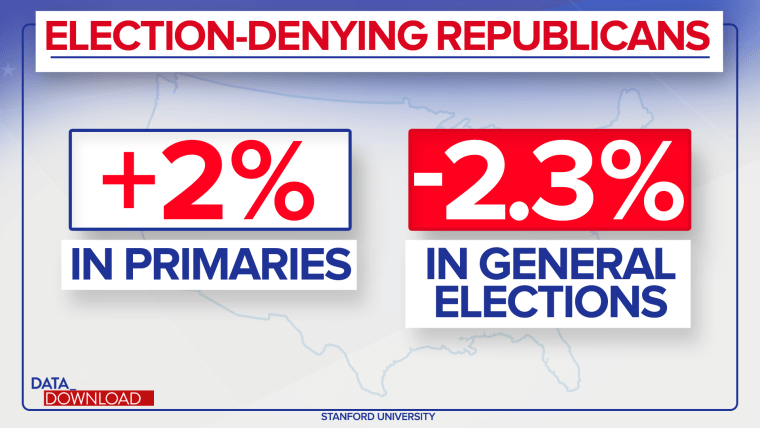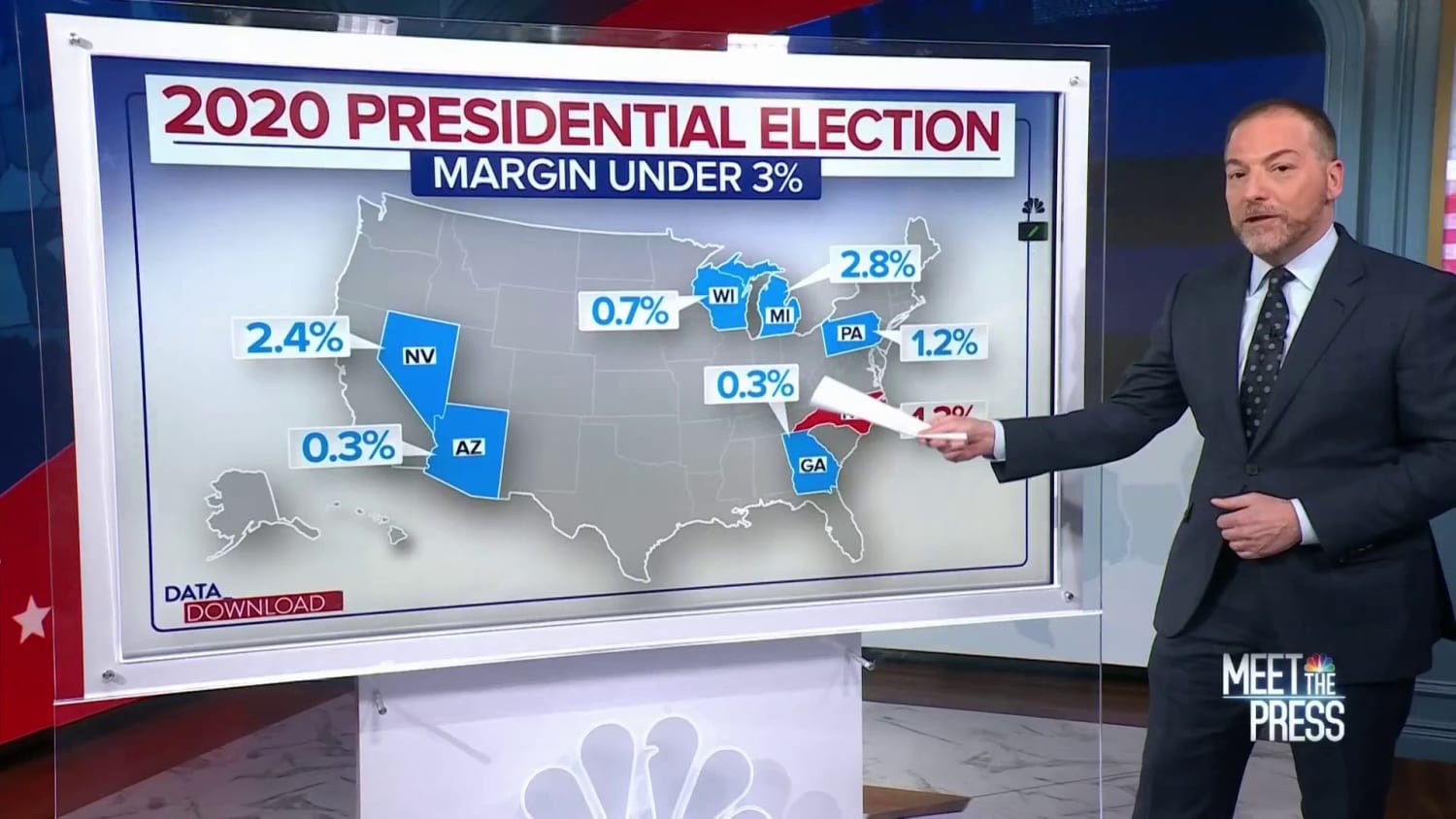WASHINGTON — As the Republican Party gears up for the 2024 presidential race, there’s a large image in the rearview mirror that refuses to go away: The 2020 presidential election.
About a week ago, the Colorado GOP selected a 2020 election denier to lead the party for the next two years. That came weeks after the Michigan Republicans selected a 2020 denier to lead their party as well.
When a party loses a presidential election, typically it sorts through the wreckage and figures out how to move forward. The GOP, however, has not done this following the aftermath of the 2020 election. A new paper authored by two academics from Stanford University has found that this has had consequences. The paper argues refusal to move on has real impacts on the party in two important ways. First, the attitude makes Republicans more likely to nominate election deniers in primaries. And two, if and when those election-denier candidates get their nominations, they are likely to face additional challenges in general elections.
The paper specifically compared the 2022 primary and general election results for statewide Republican candidates who were and who were not election deniers, finding some concrete effects.
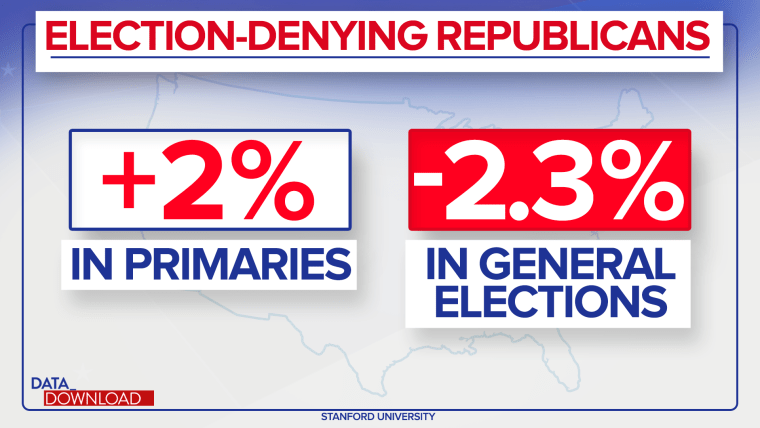
The paper found that Republicans who were election deniers received, on average, a bump of about 2 points in primaries compared to the non-election-denying Republicans, meaning they were more likely to win the nomination. But when the general election came along, election-denying Republicans performed 2.3 points worse, on average, than Republicans who say who held, correctly, that President Joe Biden won the presidency in 2020.
In 2022, you could see those dynamics at play in gubernatorial races that featured open Republican primaries in the nation’s most important political swing states: Arizona, Michigan, Pennsylvania and Wisconsin.
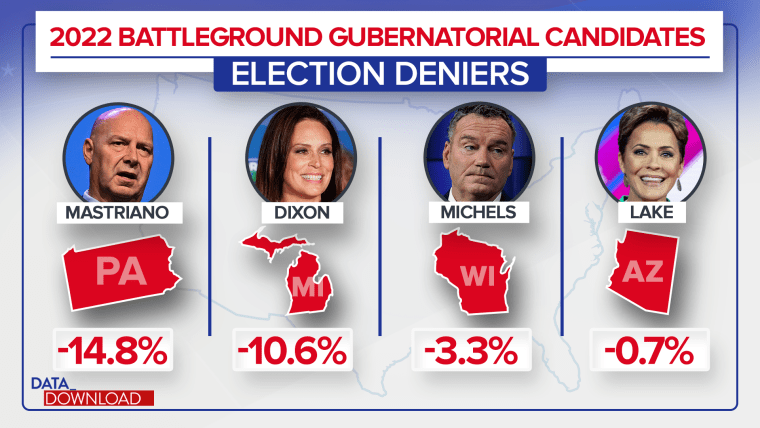
Although President Biden won those states in 2020, in each one Republicans chose an election denier for the Republican nomination for governor — and, in November, each state that candidate lost.
Depending on the race, that 2.3 points that election deniers underperformed by in 2022 could have made a difference.
In Michigan and Pennsylvania, it doesn’t look like the Republican candidates’ election denial position was the deciding factor because the margins of defeat were so large. In those states, Democrats Gretchen Whitmer and Josh Shapiro won by double digits, defeating Republican challengers Tudor Dixon and Doug Mastriano respectively.
But in Arizona and Wisconsin, that 2.3 points could have been crucial. In Arizona, Democrat Katie Hobbs beat Republican Kari Lake by less than a single point. And up in Wisconsin, Democratic incumbent Tony Evers defeated Republican Tim Michels by a little more than 3 points. If a handful of those voters flipped Republican, Michels could have won.
To be clear, campaigns are complicated and are generally about more than one issue, even if that issue is denying the reality of a previous election. Candidates matter. The individual political terrains in each state matter. Funding and donations matter. When candidates lose races by double digits, as in Michigan and Pennsylvania, there are many reasons for the loss.
But most races are not blowouts, particularly in battleground states. Consider the 2020 presidential race and margins of victory in the states that wound up deciding the election: Arizona, Georgia, Michigan, Nevada, North Carolina, Pennsylvania and Wisconsin.
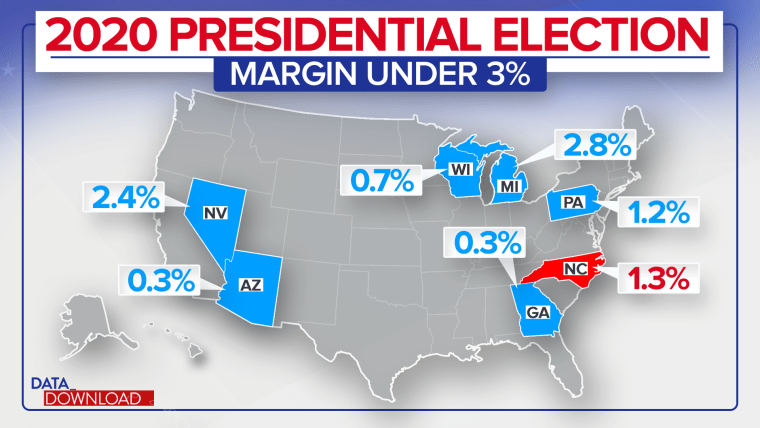
In all those states, the margin of victory in the 2020 presidential race was less than 3 points — very narrow. So narrow, in fact, that flipping 2.3 percent of the vote (the net impact of nominating an election-denier according to the analysis) from one candidate to another in any of them would have changed the outcome in the states and ultimately the national electoral tally.
Of course, the paper’s effects were measured in a midterm year and the impact could be different if the candidate at the top of the ticket is at the center of the false election narrative of 2020. That could be the case if former President Donald Trump secures the 2024 nomination. But judging by the results, 2022 certainly could be viewed as offering a cautionary note for the GOP.
In a sense, the data suggest the Republican Party finds itself trapped in a box of its own creation. Candidates might choose the false election denier stories to fire up primary voters, but if the candidates win the nomination those same stories seem to be a detriment to the larger voting public in general elections.
The broader lesson is familiar in political circles. Elections are generally about the future. Spending too much time staring into the rearview mirror, particularly when one is pushing false narratives, doesn’t seem to be a way to grow support.
Source: | This article originally belongs to Nbcnews.com
